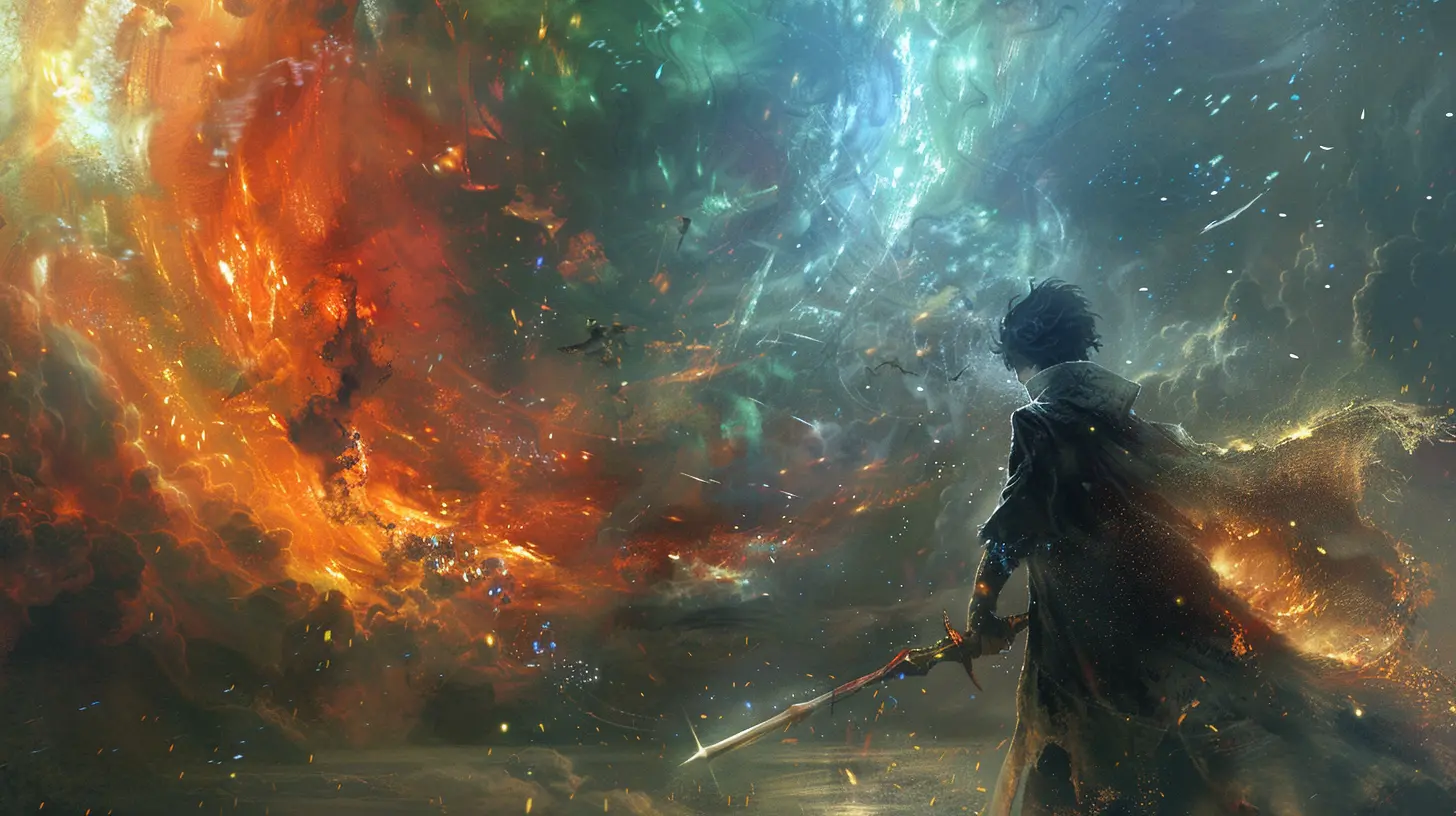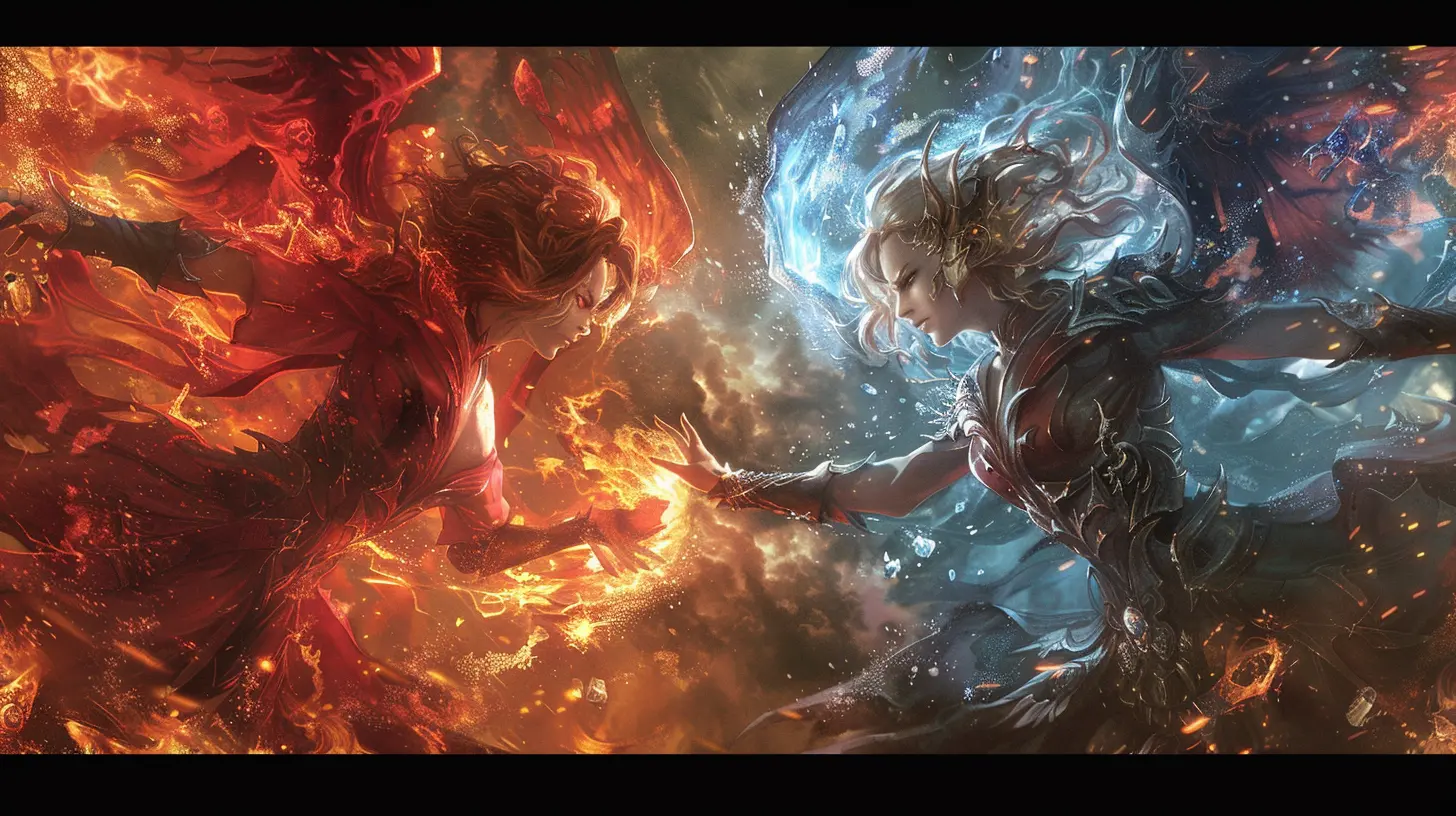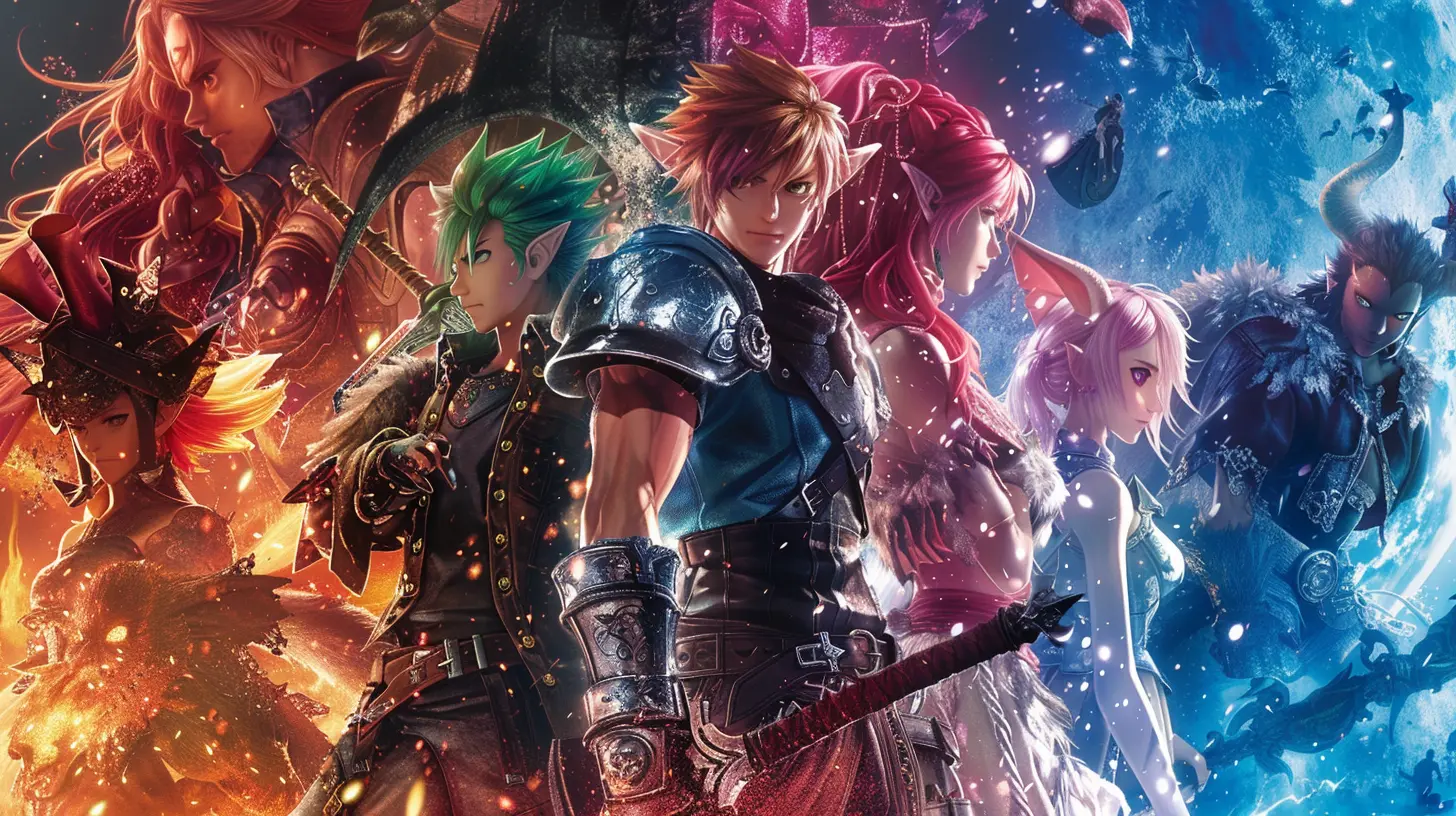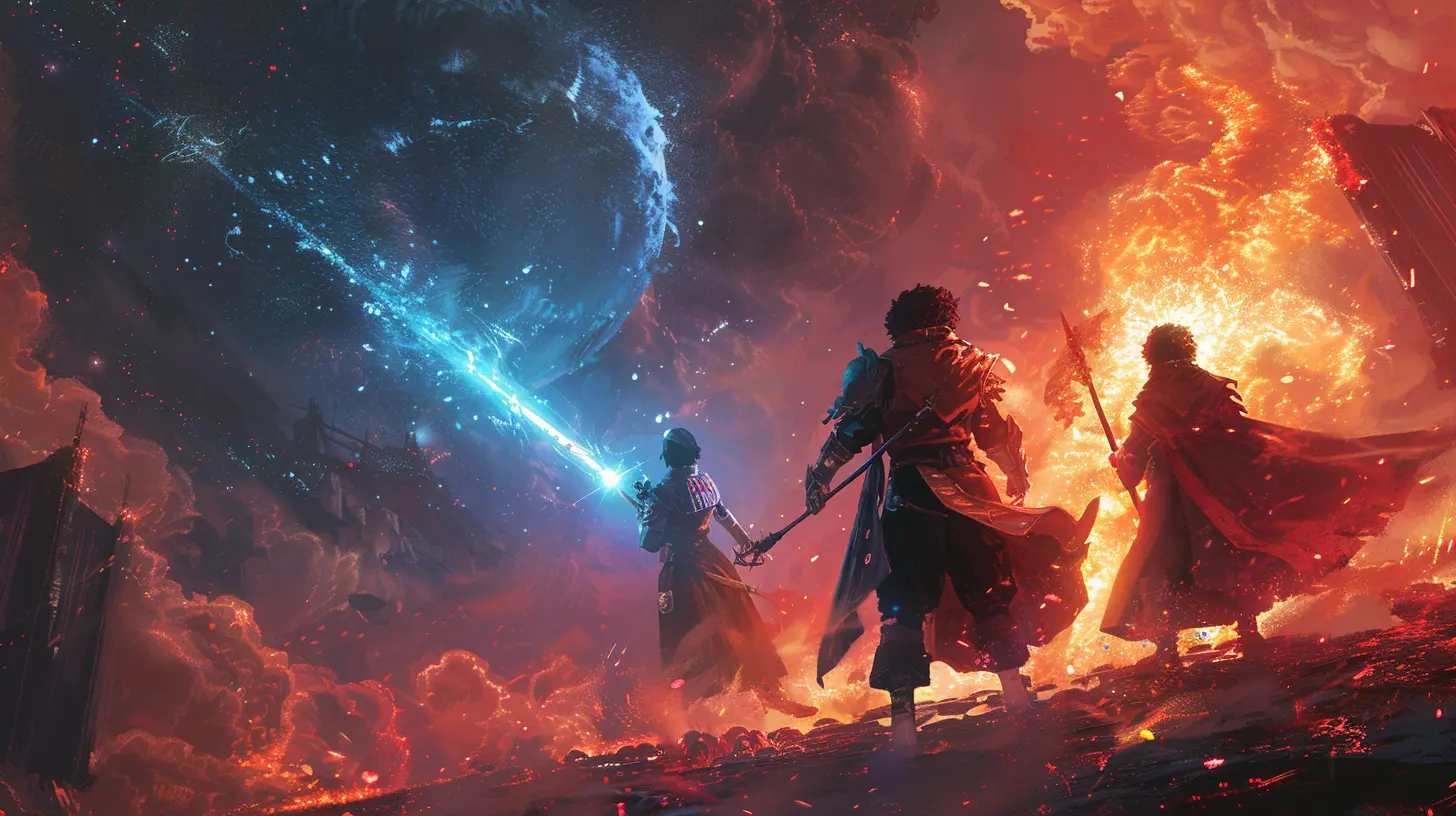Turn-Based Combat vs. Action: The Great JRPG Debate
20 September 2025
If you’ve spent any time discussing JRPGs (Japanese Role-Playing Games), you’ve probably stumbled into The Debate. You know which one I’m talking about: turn-based combat versus action combat. It’s like pineapple on pizza for the RPG community—everyone has an opinion, and they’re not shy about sharing it. Both styles have their die-hard fans, their pros and cons, and their place in gaming culture. But which one reigns supreme? Well, that’s not an easy question to answer. Let’s dig into why this debate matters, what makes each style tick, and why it’s okay to love both.
Why Does This Debate Even Exist?
Before we dive headfirst into the nitty-gritty of turn-based versus action combat, let’s address the elephant in the room: why is this such a hot topic? At its core, it’s all about nostalgia, evolution, and personal preference.Turn-based combat has been a cornerstone of JRPGs since their inception. Classics like Final Fantasy VI, Dragon Quest, and Chrono Trigger built entire generations of fans who love the strategic, chess-like approach it offers. It’s slow, deliberate, and gives you time to think. For many, it’s the essence of what makes a JRPG… well, a JRPG.
But then came action combat. Titles like Kingdom Hearts, Tales of Arise, and modern Final Fantasy games shook things up, emphasizing speed, reflexes, and real-time decision-making. Suddenly, the genre wasn’t about waiting your turn—it was about reacting in the moment. For some, it felt like progress. For others? Betrayal.
What Makes Turn-Based Combat So Special?
Ah, turn-based combat. The backbone of retro JRPGs and the ultimate test of patience and strategy. If you’re new to the idea, think of it like a tactical board game: you plan your moves, anticipate your enemies’ moves, and execute a strategy. It’s deliberate. It’s satisfying. And, yes, it’s a little old-school.Pros of Turn-Based Combat
1. Strategic DepthTurn-based combat isn’t about button-mashing; it’s about brainpower. You’ve got time to study the battlefield, think critically, and execute the perfect sequence of moves. It scratches that “problem-solving” itch.
2. Accessibility
Not everyone’s a fan of reflex-based gameplay. Turn-based combat levels the playing field. Whether you’re a gaming veteran or someone who struggles with twitchy controls, it gives you time to breathe.
3. Story Integration
Let’s face it: many JRPGs have epic stories. Turn-based systems naturally slow the pace, giving you time to soak in the narrative while you plan your attacks.
Cons of Turn-Based Combat
1. Pacing IssuesLet’s be honest: turn-based combat can feel slow. Battles that drag on for 10, 15, or even 20 minutes can test your patience, especially when you’re grinding through random encounters.
2. Outdated Feel
For better or worse, turn-based combat is often seen as “retro.” In an era of fast-paced, cinematic games, it sometimes feels like it’s stuck in the past.
3. Repetitiveness
The grind is real. If you’ve ever slogged through hours of random encounters to level up for a boss fight, you know how repetitive turn-based combat can get.
Why Action Combat Has Taken Over
On the flip side, action combat has exploded in popularity over the last two decades. It swaps out the methodical planning of turn-based gameplay for fast, fluid, real-time action. Think Dark Souls in a JRPG format or even Final Fantasy XV. It’s intense, flashy, and undeniably modern.Pros of Action Combat
1. Engaging GameplayAction combat keeps you on your toes. You’re constantly reacting, dodging, attacking, and adapting. It’s never boring.
2. Spectacle and Flash
Let’s be real: action combat looks cool. Whether it’s a juggling combo in Tales of Berseria or a perfectly timed dodge in Final Fantasy XVI, it’s a treat for the eyes.
3. Modern Appeal
Today’s gamers tend to prefer faster, more interactive gameplay. Action combat feels intuitive in a way that turn-based systems rarely do.
Cons of Action Combat
1. Skill BarrierAction combat can be unforgiving. If your reflexes aren’t great, or you’re just not into twitchy gameplay, you might find yourself struggling.
2. Less Strategic Depth
While fast and exciting, action combat often sacrifices the intricate strategies turn-based games offer. It’s more about reacting than carefully planning your approach.
3. Potential for Chaos
With so much going on at once—dodging, attacking, managing cooldowns, etc.—it’s easy to feel overwhelmed, especially in battles with multiple enemies.
The Hybrid Approach: The Best of Both Worlds?
When it comes to the turn-based versus action combat debate, there’s a third contender: the hybrid system. Games like Final Fantasy VII Remake and Persona 5 have found a way to blend the two, offering strategic depth without sacrificing real-time action.In Final Fantasy VII Remake, for example, you can switch between characters and slow down time to issue commands, combining the best of turn-based and action gameplay. Meanwhile, Persona 5 remains firmly turn-based but spices things up with flashy animations, fast transitions, and a killer battle interface that keeps things feeling modern.
Hybrids show us that “turn-based” and “action” don’t have to stand on opposite sides of the ring. With a bit of creativity, developers can create systems that cater to both camps. And honestly? It’s an exciting direction for the genre.
Who Wins the Debate?
So, is turn-based combat better than action combat? The answer is frustratingly simple: it depends. It depends on what kind of player you are, what kind of experience you’re looking for, and what mood you’re in when you pick up the controller.Love slow, strategic gameplay? Turn-based games like Dragon Quest XI or Octopath Traveler might be your jam. Prefer fast-paced thrills? You’ll probably feel right at home with action-heavy RPGs like Nier: Automata or Ys VIII: Lacrimosa of Dana.
At the end of the day, this isn’t a battle with a clear winner. Both styles have their strengths, and both bring something unique to the table. The beauty of JRPGs is their diversity. There’s something for everyone, whether you’re a strategy enthusiast, an action junkie, or a bit of both.
Why Not Both?
Here’s a wild thought: you don’t have to pick a side. Crazy, I know. It’s perfectly fine to play and enjoy both turn-based and action RPGs. They scratch different itches, and that’s okay. Some nights, you’re in the mood for a slow, methodical grind. Other nights, you want to let loose and hack-and-slash your way through waves of enemies.Ultimately, JRPGs are about telling stories, building worlds, and delivering unforgettable experiences. Whether that story unfolds through turn-based tactics or action-packed battles? That’s just the icing on the cake.
all images in this post were generated using AI tools
Category:
JrpgsAuthor:

Audrey McGhee
Discussion
rate this article
2 comments
Lisette McGivern
What an intriguing topic! I’ve always wondered how turn-based mechanics shape strategy versus the adrenaline of action combat. Which do you think fosters deeper player engagement?
December 24, 2025 at 5:58 PM
Lindsey Garcia
Great article! Both turn-based and action combat have their own unique charm. It's important to appreciate the preferences of each player, as they shape our diverse and vibrant gaming experiences. Happy gaming!
September 25, 2025 at 4:13 AM

Audrey McGhee
Thank you! I completely agree—embracing diverse preferences enriches our gaming community. Happy gaming to you too!


